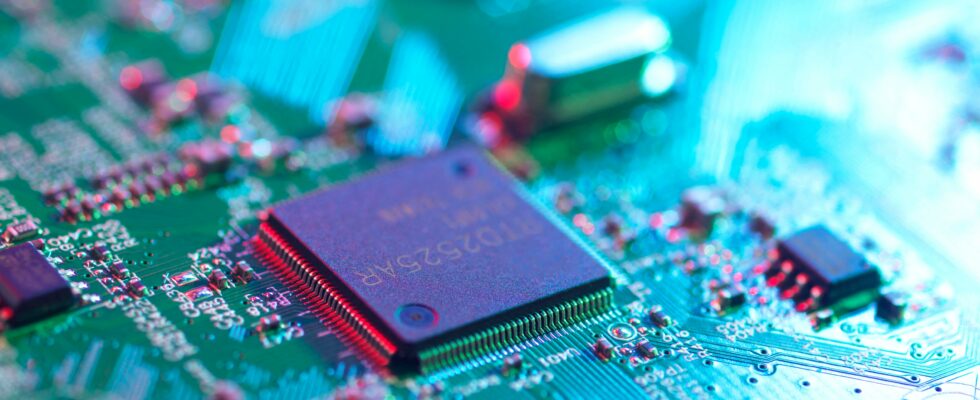It’s one of the Biden administration’s latest charges against Beijing. The American government presented this Monday, January 13, a framework of new rules on the export of artificial intelligence (AI) technologies, to both facilitate sales to allied countries and prevent its adversaries like China from having access to latest innovations.
“The United States is now leading the world in AI, whether it’s the development of AI or the design of specialized AI chips, and it is essential that it remain,” said Gina Raimondo, Minister of Commerce, during a press briefing. “Managing these very real risks to national security requires considering the evolution of AI technology, the capabilities of our adversaries, and the desire of our allies to reap the benefits of this technology,” he said. developed the one which had already unveiled in October 2023 restrictions on the export of the most efficient chips to China, in particular components used for AI, to prevent their use by Beijing for military purposes.
The new rules presented this Monday “complicate the task of our competitors, who use smuggling and remote connections to escape our export controls”, underlined Jake Sullivan, national security adviser, adding that “ they inspire our friends and partners around the world to use trusted providers for advanced AI.”
“In the wrong hands, powerful AI systems have the potential to exacerbate significant national security risks, including enabling the development of weapons of mass destruction, supporting powerful cyberattacks, and contributing to violations of human rights, such as mass surveillance”, insists the White House press release published on Monday, targeting rivals like China, Russia and even North Korea without naming them.
Exceptions to restrictions for allied countries
In this context, Washington wants to impose new authorizations for exports and transfers of sophisticated computer chips, in an expanded list of countries. This rule includes a series of exceptions for allied countries such as South Korea, Taiwan or several European countries, particularly when it comes to limited volumes, responding for example to the needs of universities.
The second rule strengthens controls on the distribution of the parameters of the most advanced generative AI models. OpenAI (ChatGPT), Google and other companies are leading a race toward ever-better models that can compete with humans on many cognitive tasks.
Finally, AI data centers, which contain the computer servers necessary to operate the most innovative models, will have to respect reinforced security conditions to have the right to import cutting-edge components.
For Beijing, “a flagrant violation of the rules” of international trade
This regulation will only come into force in 120 days, “to give the new administration time” to make changes if it wishes, said Gina Raimondo. Donald Trump will officially be back in power on January 20. During his first term, he put strong pressure on China with high tariffs.
This time he arrives at the helm with the support shown by many Silicon Valley companies, keen to be able to export their technologies. AI “is a dual-use technology”, insisted the minister: “it is used in many commercial applications, but it can also be used by our adversaries to carry out nuclear simulations, develop biological weapons and perfect the ‘army”.
For its part, China slammed these new rules on Monday, denouncing a “new example of the generalization of the concept of national security and the abuse of export controls” as well as a “blatant violation of international trade rules”. They should not find a more conciliatory partner in Donald Trump.
